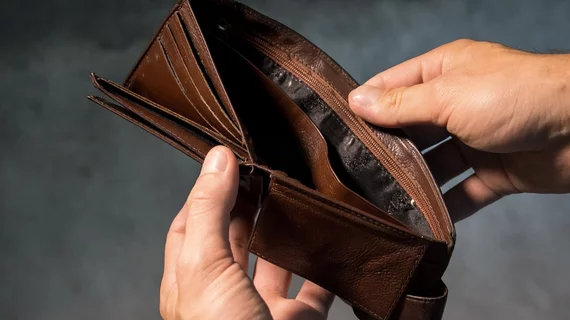Small practices left vulnerable after Change Healthcare cyberattack, with some considering bankruptcy
Physician practices, and particularly smaller groups, are still grappling with the financial ramifications of the Change Healthcare cyberattack, with some considering closing, according to new data from the AMA.
The incident first occurred in February, shutting down the nation’s largest clearinghouse for health insurance claims and payments for weeks. Owner UnitedHealth Group had promised that claims would begin flowing again by the weekend of March 23.
“Despite UHG’s assurances, serious disruptions continue,” the American Medical Association said in a Wednesday news update.
A new informal survey of 1,400 individuals underlines the broad impact of the cyberattack. Among physician groups surveyed, 80% reported losing revenue from unpaid claims and 85% had committed additional staff time and resources to complete revenue cycle tasks.
AMA noted particular concern among small practices with 10 or fewer physicians (who represented 78% of respondents). One reported concern that the shutdown “may bankrupt our practice of 50 years in this rural community.” Another said they are selling the business to a hospital system “because I just can’t bear the financial responsibility.”
“The disruption caused by this cyberattack is causing tremendous financial strain,” AMA President Jesse M. Ehrenfeld, MD, said in a statement issued April 10. “These survey data show, in stark terms, that practices will close because of this incident, and patients will lose access to their physicians.”
The AMA conducted the survey between March 26 and April 3, targeting members of national specialty societies and state medical associations. Respondents could skip questions, with not all items garnering 1,400 responses.
About 36% of survey takers reported an ongoing suspension in claims payment, 32% were unable to submit such requests and 22% could not verify benefits eligibility. Another 55% said they had to use personal funds to cover practice expenses, 44% were unable to purchase supplies and 31% could not make payroll. Some indicated that they have utilized advance payment offerings from CMS (12%), state Medicaid plans (0.7%), UnitedHealth (25%), and other insurers (4.5%).
“I have not taken a salary for a month and am borrowing from personal funds to keep [the] practice going,” one respondent said.
You can read more about the survey results here and find ongoing updates on the recovery process from UHG here.

